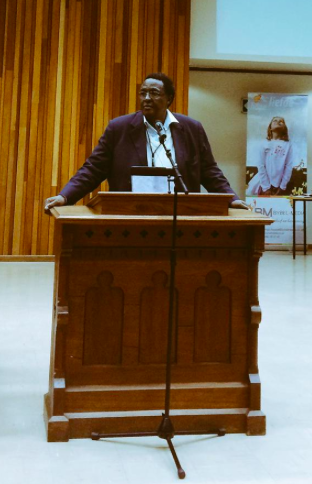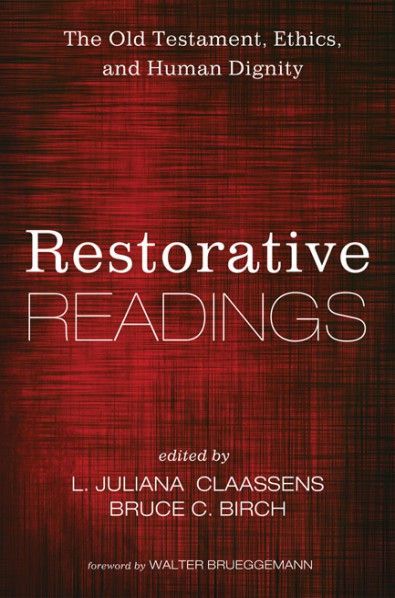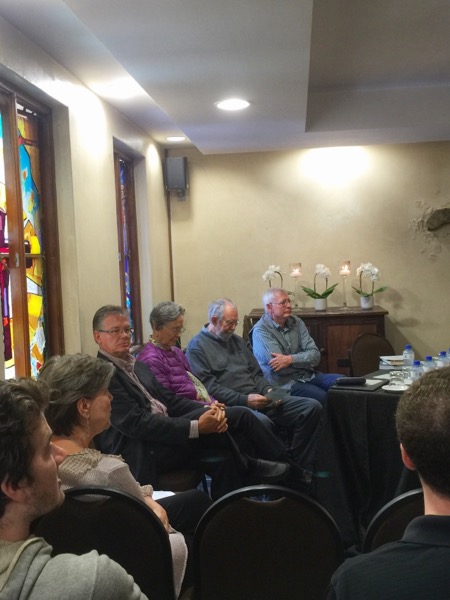This morning I attended the opening of the 'Talking Back' think tank on LGTBIQ identities and queer perspectives at the Faculty of Theology, Stellenbosch University.
Prof Lious Jonker opened the event by telling some of the contested and liminal history of Stellenbosch, the Stellenbosch University and the location and identity of the Faculty of Theology. He reminded us that just like places, geographical spaces, ideas and movements, we all have hybrid identities that are constantly developing, facing ongoing change and construction, yet they are located in a particular space and need to operate from there.
He shared some sections of Prof Nico Koopman's colum in today's 'Die Burger' newspaper.
Here is Prof Koopman's column. It is a deep challenge to live for human dignity, take personal responsibility for the common good, and exercise tolerance and cooperation for the transformation of society for the better.
South Africa needs transforming individuals
Our societies need not only transforming institutions, we also need transforming individuals. We need people who impact positively on society, and who help society to reflect human dignity, with its three building blocks of justice, freedom and the healing of wounds of people who suffer under our socio-economic and political systems. We also need individuals who are focused on their own transformation and renewal.
Transforming individuals have the ability to deal with complexity constructively. Complexity has different faces.
Transformation people are people who can live with plurality. They embrace the multiplicity of identities and cultures, views and perspectives of reality. Religious and secular comprehensive meaning-giving frameworks help us with the development of an ethos of tolerance and embrace.
Renewing people understand that our lives are riddled with ambiguity, with multiplicity. They therefore know that the same notion can have divergent meanings for different people. For some people words like transformation and justice are a cause for rejoicing. For others they imply a threat, a reason for anxiety. The word reconciliation comforts some, while others feel the word frustrates their struggle for a life of human dignity.
Renewing people realise that to live as a human being, is to live with ambivalence, with duality. A situation, system, person or group is not singularly good or singularly bad. Both positive and negative aspects are present.
Agents of transformation reject oversimplification and see the nuances and shadings of issues. They realise that oversimplification leads to inadequate solutions.
People who value their own renewal and the renewal of society, also guard against anti-intellectualism and irrationalism. They embrace intellectualism. They want as many facts on the table as possible. They want to be informed before they make choices or act. Intellectual exertion helps to protect them from the almost irrational absolutisation of the own opinion, and the resulting stereotyping and stigmatisation, demonising and destruction of those who differ from one. The Christian tradition teaches that where people love God with all of their minds, anti-intellectualism and its negative outcomes can be overcome.
Transformation people live with paradoxicality, with apparent, but not real, contradictions. For example they understand that it is possible to create greater inclusivity without creating new exclusions.
People who serve transformation, are also people who recognise the tragic and dead-end (aporetic) character of reality. They identity with disadvantaged and wronged people. And where there is this love and concern for frail and vulnerable people, we develop the creativity, imagination and will to find renewing ways out of blind alleys.
Nico Koopman is dean of the Faculty of Theology, Stellenbosch University
I would love to hear any thoughts you have. We are indeed living at an intersection in South Africa between different classes, cultures etc. We need people who are willing to live as transforming and transformative individuals for the common good of our shared future in South Africa. I am deeply challenged by this.
 Tuesday, June 2, 2015 at 12:57PM
Tuesday, June 2, 2015 at 12:57PM  You can download Prof Barney Pityana's opening Keynote on Discipleship Active Citizenship which was delivered on 2 June 2015 at the Winter School of the Faculty of Theology at Stellenbosch University from this link [mp3 file, 50MB]
You can download Prof Barney Pityana's opening Keynote on Discipleship Active Citizenship which was delivered on 2 June 2015 at the Winter School of the Faculty of Theology at Stellenbosch University from this link [mp3 file, 50MB]





